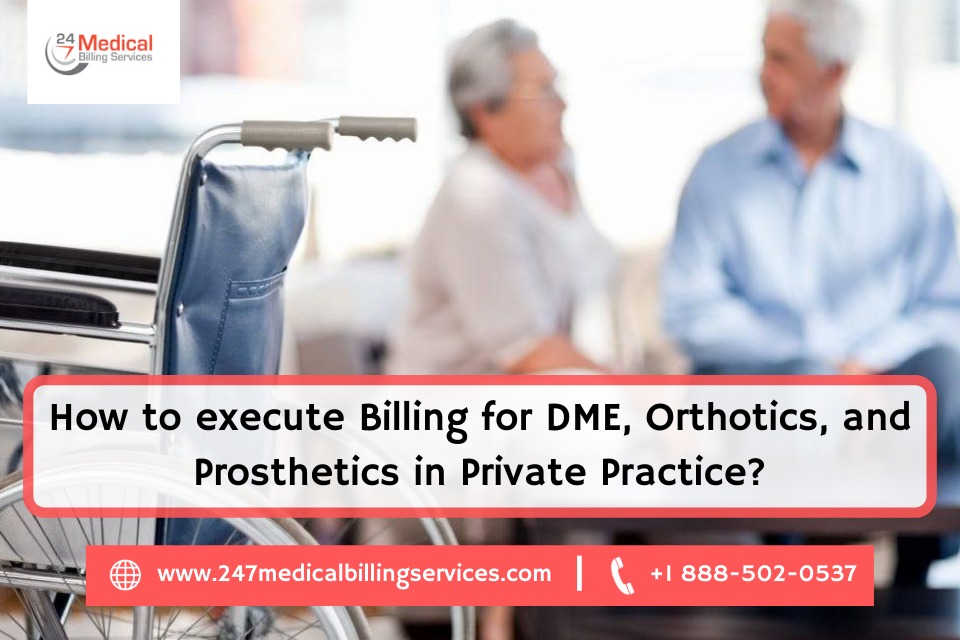How to execute Billing for DME, Orthotics, and Prosthetics in Private Practice?
Durable medical equipment (DME) billing is quite a long process but definitely an achievable one; similarly, it is for Orthotics and Prosthetics billing as well, in a private practicing environment. You can buy few items in online or even in the physical store by paying out quick cash and take the product along with you, which cannot be applicable when it comes to DME billing and billing for Orthotics and Prosthetic. In fact, by doing so may end up in rooms filled with errors.
 DME Billing Services
DME Billing Services
There are certain guidelines that can be followed to streamline DME and other billing processes, which help your patients to gain what they need and pay you what you are supposed to receive.
#1: Generating a DME service provider number
To obtain reimbursements for your DME supplies, splints, orthotics, and other supplies, you must have a DMEPOS number. This number is your proof that shows you are a DME supplier. Licensing is different from DMEPOS supplier number. Since your claims should come through Durable Medical Equipment Regional Carrier (DMERC), it is not easy to get over the process without providing the DMEPOS number while applying.
Here are certain things you need to know before applying for the DMEPOS number:
- The entire application process might take at least 60 business days before enrollment.
- A Medicare inspector can come and visit your place before issuing the supplier number.
- You may have to re-enroll after three years and likewise, another Medicare inspector makes an attempt to visit your place and only then, the supplier number is issued to you.
Choosing the right code according to the service you provide might be a challenging one. The codes can be of different types according to categories for DME billing, Orthotics, or Prosthetic.
Here are some tips to know how these codes can vary:
- Prosthetic Initial Encounter Code : 97761
- Orthotic and Prosthetic Management: 97763
- Splinting and Bracing: L-codes
#3: Reimbursement
This is foremost important because it is the reason behind the execution of DME Billing. All three Orthotics, Prosthetic, and DME billing includes different parameters under several categories. For example, if you take Orthotics reimbursement, Medicare can ask you for evaluation, fitting, parts and labor, adjustments made while fitting and not more than 90 days from the delivery date, or repairs if any due to regular usage and exposed to wear or tear within 90 days from the date delivered.
#4: Choosing between Renting and Selling DME
Before you rent or sell a DME item to your patient, your DMERC expects you to intimate them about your patient’s decision whether buying or selling.
You can mention any of these modifiers in the claim form while you submit it to the DMERC.
- Choose BR if your beneficiary has opted for renting the item.
- Choose BP if the beneficiary has opted for buying the item.
- Choose BU if you have notified both the options to the beneficiary but have not made their decision within 30 days.
For few items, you should provide a certificate of medical necessity (CMN) and moreover, the list of items may vary across the DMERCs. But there are certain common items such as TENS units, wheelchairs, CPAP machines, osteogenesis stimulators, hospital beds, power-operated vehicles and more.
Conclusion
These are certain criteria that you can consider while executing DME billing, Orthotics & Prosthetics billing, preferably if you are a private practitioner. 24/7 Medical Billing Services is an expert who have achieved milestones across verticals in the DME billing and coding process. They provide free consultation on obtaining DMEPOS supplier number and the complete process for successful establishment.

.png)